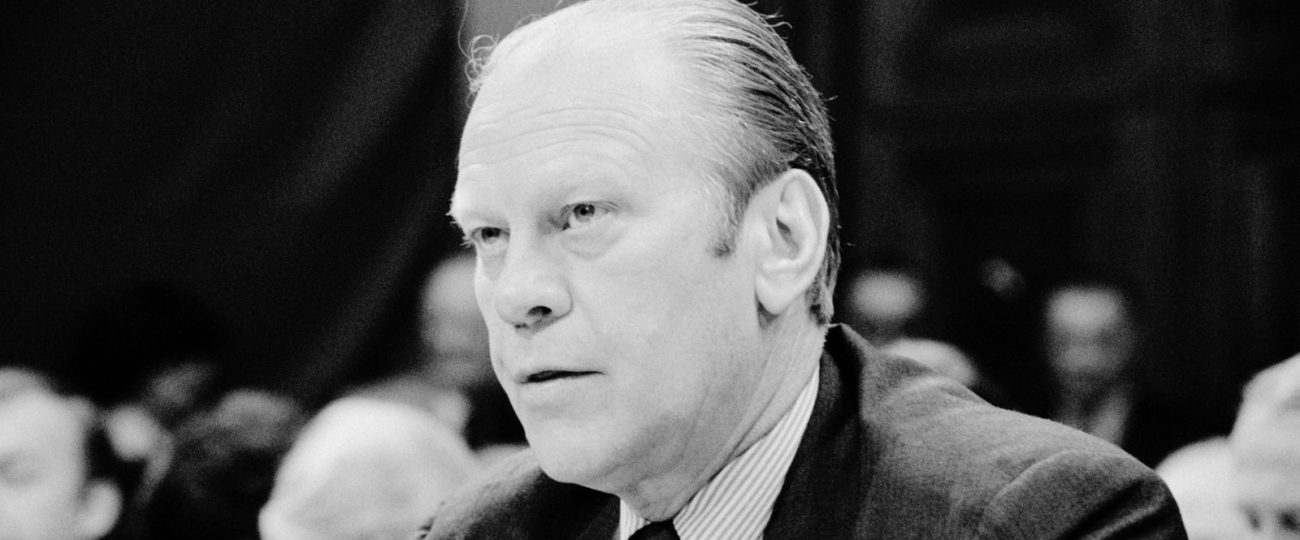What Happened On September 8th?
On the morning of September 8, 1974, President Gerald Ford signed a full and unconditional pardon for his predecessor, Richard Nixon. Only a month had passed since Nixon’s resignation in the wake of the Watergate scandal, and many in the country expected legal action against him. However, Ford, addressing the nation from the Oval Office, explained that his decision was driven by the need to end the nation’s divisions and heal from the political crisis.
At precisely 11:05 a.m., Ford signed the pardon, shielding Nixon from federal prosecution for any crimes committed during his time as president. Ford’s legal advisors crafted the pardon to cover all offenses from January 20, 1969, to August 9, 1974—the entirety of Nixon’s presidency. Ford believed that a protracted trial would only exacerbate the country’s already deep political wounds.
Ford’s legal counsel, Philip Buchen, helped to ensure that the pardon was legally sound, yet even most of Ford’s inner circle had no knowledge of the plan until hours before the official announcement. Ford himself wrestled with the decision for weeks, carefully weighing the potential consequences. Nixon’s failing health, marked by his battle with phlebitis, added an additional layer of urgency. Ford worried that the stress of a trial might further harm Nixon’s health, which was already precarious.
Americans who had followed the Watergate hearings and watched Nixon resign in disgrace felt the pardon deprived them of justice. Ford’s approval ratings, which had been high during his early days in office, dropped almost overnight. The immediate backlash from his own administration highlighted the controversy. J.F. terHorst, Ford’s press secretary, resigned within hours of the announcement. He publicly stated that his conscience would not allow him to support the president’s decision.
Ford’s belief in the necessity of the pardon remained steadfast. He understood the likely political consequences, yet he believed that dragging Nixon through a trial would only distract the nation from more pressing matters. What many did not know at the time was that Ford had been receiving conflicting advice, not just from his political aides but also from prominent figures outside the White House. Some close friends urged him to let Nixon face the legal consequences of his actions, while others, including prominent Republican leaders, warned that allowing a former president to stand trial would set a dangerous precedent.
Nixon, secluded at his California home in San Clemente, experienced an immediate sense of relief when he learned of the pardon. Though his health had been deteriorating, Nixon understood that accepting the pardon came with significant personal costs. By doing so, he legally admitted guilt for any crimes committed during his presidency, something few at the time publicly acknowledged. Historians would later argue that this implicit admission weighed heavily on Nixon for the rest of his life.
The Constitution granted the president broad powers to issue pardons for federal crimes, but the unprecedented use of that power in Nixon’s case raised significant ethical and legal questions. Nixon had not been formally charged with any crime, and some legal scholars believed that a preemptive pardon stretched the limits of presidential authority. Despite these challenges, Ford’s legal team, having studied previous cases of pardons, ensured that the pardon adhered to constitutional limits.
Politically, the pardon had immediate consequences for Ford. Within days, polls showed a sharp decline in his approval ratings, and the American public, still reeling from Watergate, felt betrayed. Ford’s decision to pardon Nixon overshadowed much of his presidency and fueled speculation that he had cut a secret deal with Nixon when he was appointed vice president. Although Ford vehemently denied any such agreement, the rumor persisted.
Interestingly, the pardon also caused fractures within the Republican Party. While many conservative leaders privately supported Ford’s move, others, particularly those with presidential aspirations, distanced themselves from the decision. This internal division would later play a role in Ford’s struggle for the 1976 Republican nomination, a battle that culminated in his narrow defeat by Jimmy Carter in the general election.
Ford’s decision also caught the attention of foreign governments. Watergate had already damaged America’s reputation abroad, and the pardon, to many international observers, only deepened their skepticism about American democracy. Some authoritarian regimes, particularly in Eastern Europe and the Soviet Union, saw the pardon as confirmation that even in democracies, political elites could evade justice. Meanwhile, U.S. allies in Western Europe watched with cautious optimism, hoping that Ford’s decision would help stabilize the political climate in the United States and return the focus to pressing global issues, particularly the ongoing Cold War.
Henry Kissinger, then Secretary of State, helped to shape Ford’s understanding of the international ramifications of the pardon. Kissinger believed that Nixon’s continued legal troubles would harm America’s foreign relations, particularly in negotiations with the Soviet Union. By pardoning Nixon, Kissinger argued, Ford could redirect attention toward repairing diplomatic relationships damaged by Watergate.
It is often overlooked that early drafts of the pardon considered extending clemency to Nixon’s aides, many of whom had also played central roles in the Watergate cover-up. Ford ultimately decided against this broader amnesty, fearing that it would inflame public anger even more. His advisors cautioned that a blanket pardon for all involved could have caused even more widespread distrust in government, a situation Ford sought to avoid at all costs.





